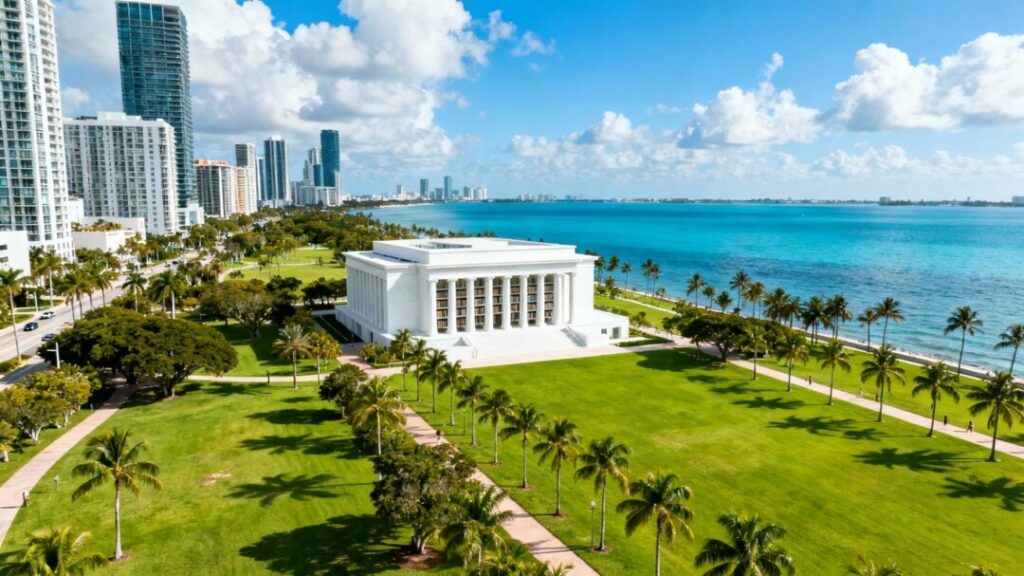A contentious decision to award a valuable chunk of Miami real estate for Donald Trump’s future presidential library is at the heart of a new lawsuit. Critics argue that the deal was made with little public transparency, as a local activist moves to halt the property transfer and demands further investigation.
Key Takeaways
- Nearly 3 acres of downtown Miami, valued at over $67 million, were gifted for Trump’s future presidential library.
- A lawsuit alleges Miami Dade College’s board violated Florida’s open government law when approving the deal.
- The land was quickly transferred to the Trump Presidential Library Foundation, sparking questions about transparency and public benefit.
The Land at Stake: Value and Location
The property in question is a rare, undeveloped parcel situated along the prominent Biscayne Boulevard. Surrounded by luxury condos, it overlooks a waterfront park and sits near the Miami Heat’s arena. Previously used as an employee parking lot for Miami Dade College, the land had once been considered for expanding the college’s downtown campus. With a value assessed at more than $67 million, some experts believe it could bring in much higher sums on the private market.
How the Deal Unfolded
On September 23, Miami Dade College’s Board of Trustees convened a special morning meeting, providing an ambiguous agenda that vaguely mentioned a property transfer but gave no specifics. The meeting was not livestreamed, breaking from the board’s usual practice. Soon after, Florida Governor Ron DeSantis formally proposed the gift, and within a week, he and the State Cabinet ceded the land to the foundation overseeing Trump’s presidential library project. The foundation is managed by Trump family members and close associates.
Lawsuit Challenges Transparency
The lawsuit, led by Miami historian and activist Dr. Marvin Dunn, claims the procedures violated Florida’s Government in the Sunshine law, which mandates that public meetings offer sufficient notice and openness. Dunn argues that the college board’s vague meeting description and lack of public accessibility denied citizens a legitimate chance to weigh in on the substantial land gift.
Public Backlash and Political Ramifications
Many Miami residents see the property as an asset that should remain for public educational use. Recent polling suggests overwhelming opposition to the transaction, with a majority of local respondents—across party lines—favoring the land’s retention by Miami Dade College. Former college leaders and civic figures have described the deal as poorly justified and inadequately discussed in public forums, raising concerns about the broader implications for public trust.
What Comes Next?
The legal challenge seeks to halt the land transfer and prompt further scrutiny. As stipulated in the deal, the property must exhibit elements of a presidential library or center, with construction required to commence within five years. However, no concrete commitments exist to directly benefit the college. The case is expected to test not only the deal’s legality but also the standards for public oversight in major civic decisions.


